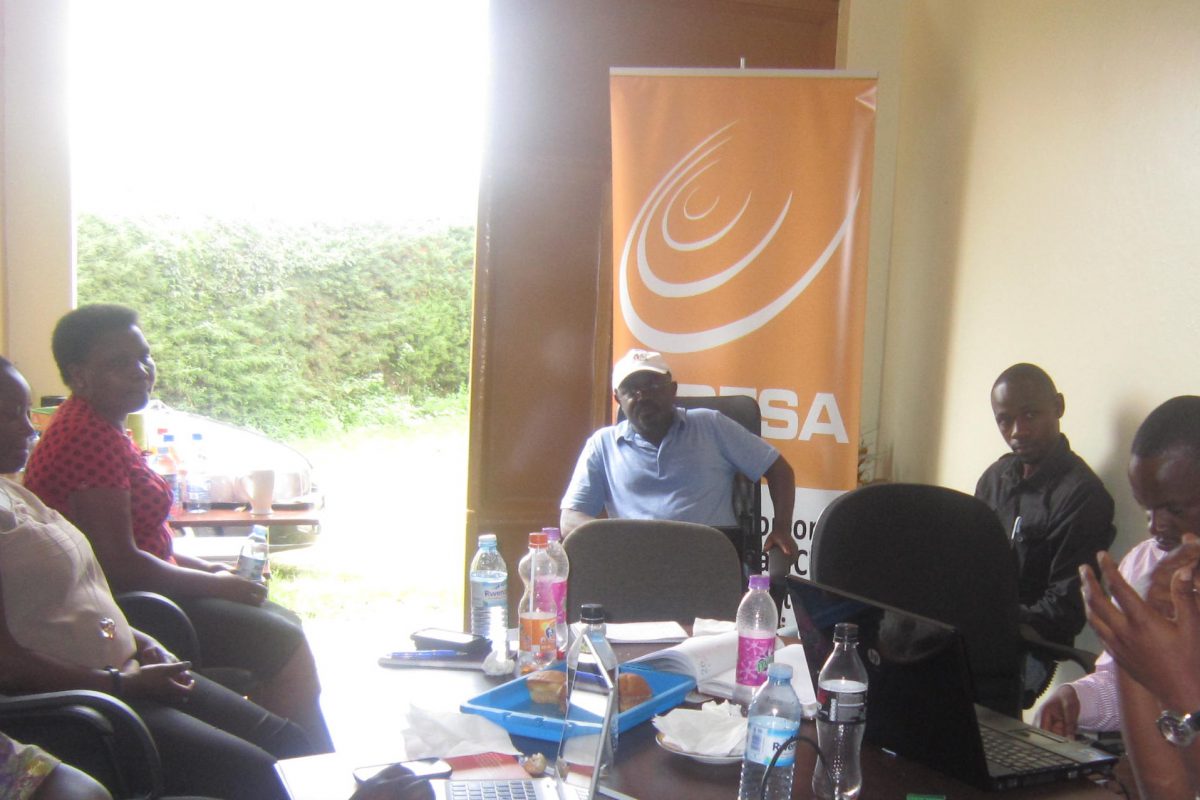Tweet
Report |
During 2014 and 2015, CIPESA implemented a project aimed at empowering citizens in East Africa to use Right to Information (RTI) laws to lodge requests and document their experiences through the use of Information and Communication Technologies (ICTs). The project further aimed to undertake awareness raising and network building activities to promote the right to information in Kenya, Uganda and Tanzania, and create awareness among lawmakers on regressive policies and practices that undermine proactive disclosures. The project also planned on network building to be achieved through the sharing of experiences gained from the three countries among the engaged network of change actors across the region.
Since the closure of project activities, an evaluation was commission to establish the achievements, outcomes and challenges registered by the project during the period January 2014 – December 2015. The evaluation assessed the appropriateness, effectiveness and outcomes of the project in relation to its planned objectives.
The evaluation focused on project activities in Uganda and the use of Alaveteli – an Open source platform that enables citizens to request for information with the replies recorded for all to see on the AskYourGov (AYG) website (www.askyourgov.ug) as the key technology medium, as well as social media namely Facebook and Twitter.
Key findings
The use of the AYG platform by citizens is still low, compared to alternative Freedom of Information (FOI) channels (for example, a respondent at the Ministry of Lands Housing and Urban Development reported that he receives/responds to approximately 32 requests a day by phone, face to face, or paper-based request forms), and has not grown over the two years. As well, the response from MDAs is below average. Though there is political will from the Office of the Prime Minister in Uganda, ownership of the platform and its continued functionality is still the responsibility of partners – Africa Freedom of Information Centre (AFIC) and CIPESA and does not seem to have yet taken root within most Ministries, Departments and Agencies (MDA).
Recommendations
- Consider a phased approach to implementing the AYG platform in MDAs. Adopting a more systematic phased approach to implementation and roll out, and contextualized to the specific needs of each agency could help address the unique MDA contexts and ensure a more effective use of the platform. Rather than spreading efforts (of particularly limited resources) and adopt a blanket approach to the implementation of the portal, a phased systematic approach that involves a few MDAs coming on board at a time is recommended. For example the evaluation shows that the majority of the FOI requests are related to land, taxes and inquiries on internship and recruitment. This could be interpreted in two ways: – (i) that these issues could be the most pressing information needs of citizens currently; or (ii) that the effective response from the respective MDAs has created citizen demand. This could give some insight to justify a phased approach in prioritizing MDAs to work with on the AYG platform.
- Build an Advocacy network of CSOs to sustain the demand for government responsiveness on the AYG platform. Such a network is likely to realize a much stronger and sustained voice in mobilizing, advocating and lobbying continuous Government’s responsiveness on the AYG platform.
- Sustain stakeholders’ engagement activities (awareness raising and capacity building). Some of the issues that hinder requesting and disseminating information by the rights holders (citizens) and duty bearers (government officials) respectively are the culture of secrecy among duty bearers, and the limited understanding of the RTI laws among other things. Changing such individual and organization norms, cultures and practices takes time. Sustained engagement of rights holders and duty bearers is therefore very critical and future projects should avail sufficient resources for this.
- Make the platform more inclusive to encourage usability in different contexts. Future implementations could adopt a more inclusive approach that looks into mixing ICT platforms such as the web-based platform, SMS, as well as integrate a back-end function that can easily be manipulated to enable agencies to coordinate and centrally manage information requests from the various modes of delivery i.e. the back-end function should be in position to manage, monitor and keep track of all requests that come into the agencies irrespective of the mode of delivery. This should encourage usability by all classes of stakeholders, while the back-end would provide for easy management and tracking of requests.
Lessons Learned
- The Success of the AYG platform in an MDA is dependent on a number of pre-requisites that include functional business processes, policies, infrastructure, and human resources related to information disclosure. This kind of organization context makes it easy for speeding up the uptake of the AYG platform as it complements already ongoing work and may not appear as an additional burden to MDA officials.
- The AYG platform could be more effective if its roll out is prioritized to target specific information needs of citizens. This prioritization could be based on a number of factors that may include: – findings of a needs assessment of Citizen Information needs, readiness of MDAs, National priorities defined in strategies like National Development Plans among others
- The passing of relevant RTI laws in the country is key in providing an enabling environment to implement a project of this nature
Download and read the full evaluation report here.



